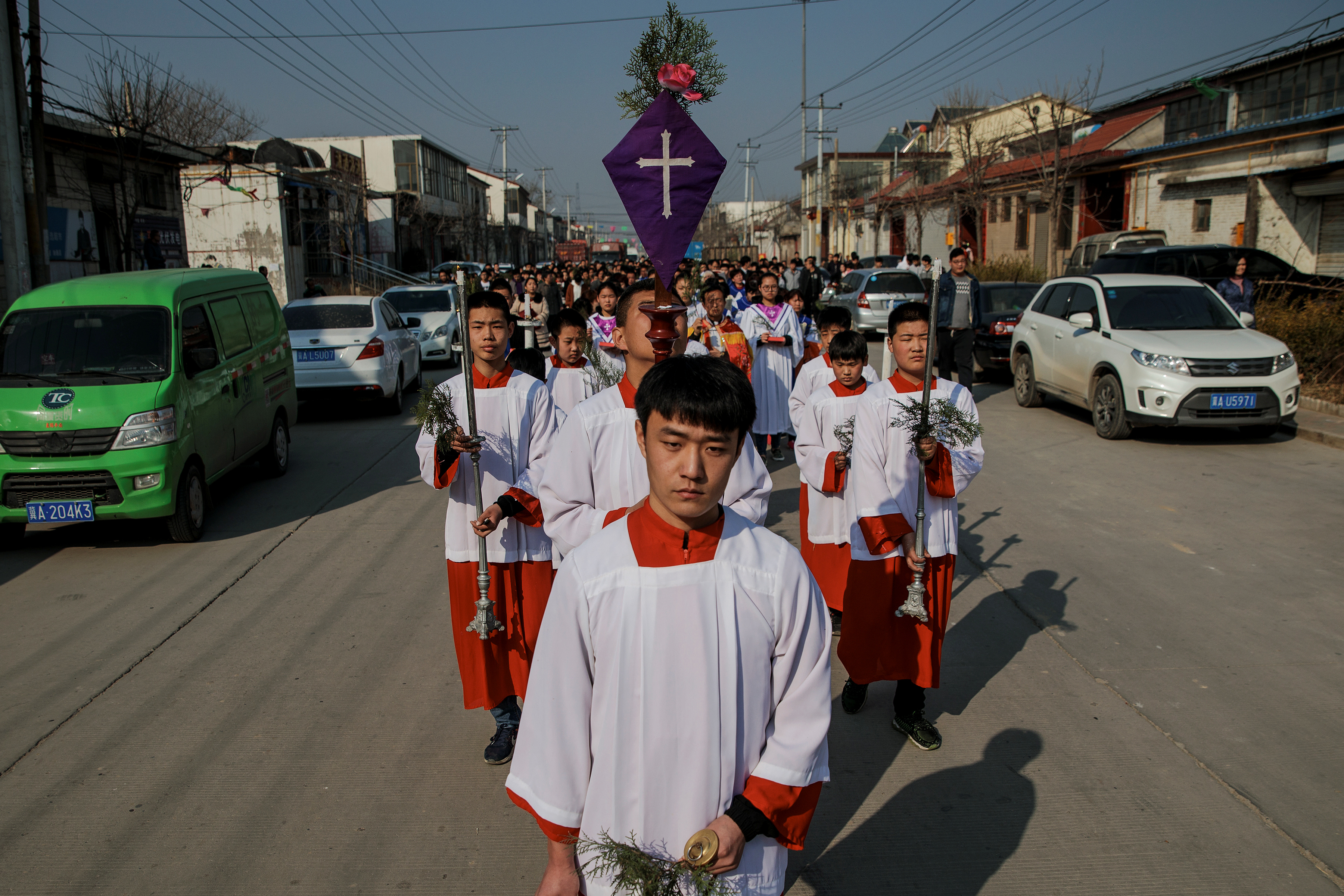China’s Communist Government this week issued its first “white paper” on religious freedom in the country in 21 years. The paper does not have the same status as a UK Government “white paper”, that proposes policy for parliamentary debate and legislation. The white paper is “not a policy document or a law, it is only a proclamation and a report on [the Government’s] position”, Ying Fuk-tsang, director of the divinity school of Chung Chi College at the Chinese University of Hong Kong, told Uca News, the independent Catholic news site in Asia.
The paper is therefore of interest in the context of what it reveals about the state of negotiations between Beijing and the Vatican on the control of episcopal appointments. Whatever is agreed will have colossal implications for the future of the Catholic Church in China, and for its two “expressions”: the “Patriotic Church” whose first loyalty is to Beijing, and the “underground” Church, whose first loyalty is to Rome.
The white paper describes party authority over religion as being necessary for China's independence, saying Western religions such as Christianity “had long been controlled and utilised by colonialists and imperialists”. It also emphasises that Muslim leaders in China must keep their followers clear of extremist views.
President Xi Jinping, who recently was accorded a status in the Communist Party that allows him to rule indefinitely – a move endorsed almost unanimously by the 3000-strong National People’s Congress, which has Patriotic Church clergy as members – favours the word “sinaicisation” to describe the de facto party control of religion and the Church that he is engineering. The party’s United Front Work Department last month took over from the Religious Affairs Bureau as the Government’s religion watchdog. It is notoriously draconian in its enforcement of party edicts.
Chen Zongrong, a former deputy director of the Religious Affairs Bureau, said on 3 April that he did not agree that preventing the Vatican from having full control of the appointment of bishops would hinder freedom of religion. According to UCA News, he said the Government in Beijing was making a concerted effort to come to an agreement with the Vatican under which China would select bishop candidates but the Pope would have veto power, in an arrangement meant to end the appointment of rival clerics.
This chimes with reports that have leaked from the negotiations, according to which Beijing would first name three bishops for a particular diocese, and the Pope would then select one of these three.
A highly tendentious and worrying element of the white paper is contained in the section where it quantifies the number of people who practise religion in China. It gives a total figure of 200 million, which is double the 100 million in the previous paper published in 1997. However it goes on to claim that six million are Catholics, 38 million Protestants and 20 million are Muslims.
The number of Catholics in China is usually estimated at 12 million, and the six million figure in all likelihood only includes Patriotic Church members. The paper, therefore, does not appear to recognise up to six million underground church members, and the fate of these people, clerics and laity, after any agreement with the Vatican, would appear to be in the balance.
With the United Front Work Department in place to enforce obedience to the Communist Party, there are obvious fears – expressed by former Hong Kong bishop Joseph Zen and many others – regarding what would happen to underground church members who did not fall in with the new order of the Chinese Church, on the basis of its perceived subservience to the Communist Party. The millions of Protestants who worship in “house churches” are also unlikely to be numbered in the figure of 38 million, and their fate too is shrouded in uncertainty.
Or Yan Yan, a project officer at the Justice and Peace Commission of Hong Kong, said the white paper mentioned managing religious affairs according to the law, but the law in China is not to protect religious freedom of citizens but to monitor and control religions. Quoted by Catholic News Service, she said many regulations and laws implemented on the mainland, especially the revised regulations on religious affairs published in February, have violated the protection of religious freedom declared in the context of the International Convention on Human Rights. The white paper uses “beautiful wording” to describe the principle of “independence, autonomy and self-administration”, she said, but noted this principle is primarily not about respecting the inculturation, autonomy and nature of the Church but more about destroying the essence of the Church and the principle of faith.
Pic: Altar servers lead a Palm Sunday procession March 25 in Youtong, in China's Hebei province. (CNS photo/Damir Sagolj, Reuters)



 Loading ...
Loading ...